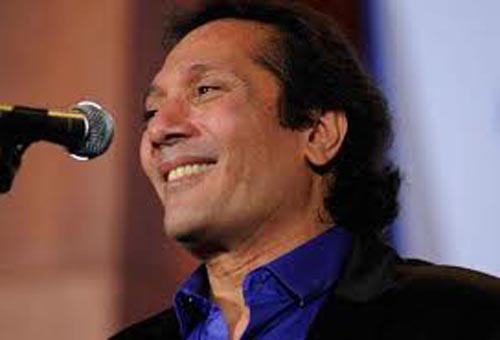
Cairo: Egypt’s celebrated singer Ali Al Hajar is known for his anti-Islamist narrative. But his critics say he has gone too far in his latest song “We Are One People and You Are Another”.
In the latest sign of Egypt’s sharp political polarisation, Al Hajar has recently hit local TV stations with the song lambasting the Muslim Brotherhood whose leader Mohammad Mursi was deposed in July by the army as Egypt’s first democratically elected leader.
“We are one people and you are another. What has shaken our heart has left you untouched. Although there is one God, we have our own God and you have yours,” go the lyrics of the controversial song.
It also criticises Islamists, without naming them, over their attitudes towards women, art, freedoms and religion.
“We see our religion as a call for enlightenment and civilization. You reduce it to a short dress or a separating curtain. We see Avicenna while you see Bin Laden,” reads another part of the lyrics, referring to the Muslim philosopher scientist, and the founder of Al Qaida respectively.
The work, composed by famous anti-Islamist lyricist Medhat Al Adl, was seen by more than 180,000 people in the first days of its release on the Youtube. The song has frequently been shown in recent weeks on pro-army TV stations in Egypt.
“Even art is being manipulated for inciting hatred, sowing disunity and damaging social peace,” said Hatem Azzam, an Islamist politician. “This song is a historic blunder for Ali Al Hajar,” added Azzam, a deputy head of the Islamist Al Wasat Party, an ally of the Brotherhood.
The military ousted Mursi on July 3 after millions of Egyptians took to the streets demanding an end to his one-year rule.
The Brotherhood and its allies condemned his removal as a coup and vowed to continue protests until he is reinstated. More than 1,000 people have been killed since Mursi’s toppling. Hundreds of Islamists, mainly Brotherhood’s officials, have been detained in what the military-installed authorities say is part of “war on terrorism”.
Authorities have shut down pro-Mursi TV stations allegedly for inciting violence. Opponents of Islamists have increasingly called for excluding them from the country’s political process, raising fears about prospects for national reconciliation in Egypt, the Arab world’s most populous country of 85 million people.
Al Hajar’s song has drawn criticism from liberals too. “After this song, it is not unlikely we’ll hear about demands for self-determination [by Islamists] in Egypt,” tweeted Alaa Abdel Fattah, a liberal activist known for anti-military posturing.
Al Hajar defended the song, saying it came in response to the Brotherhood’s behaviour when it was in power.
“I have a strong conviction that the Brothers themselves are the reason for splitting up Egyptians although we were for long one people,” he told the independent newspaper Al Masry Al Youm.
“In fact, I made a mistake when I described the Brotherhood [in the song] as the other people because they are in fact a minority and a very weak political faction that cannot be compared to the people who turned out on June 30 [against Mursi].”
During Mursi’s short-lived presidency, his opponents accused him of acting at the Brotherhood’s behest, promoting religious intolerance and failing to manage the country’s daily problems.













